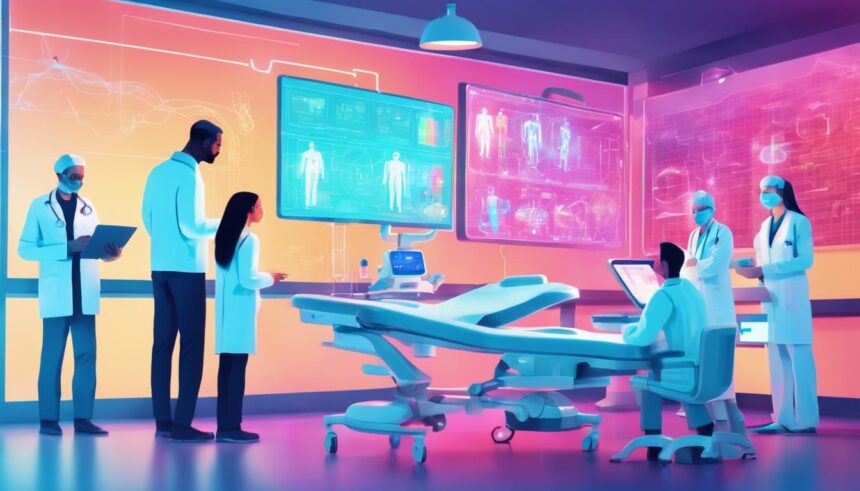The integration of artificial intelligence in healthcare is set to revolutionize patient care and diagnostics, with a predicted compound annual growth rate of 36.4% from 2024 to 2030.
The onset of artificial intelligence (AI) in the realm of healthcare is poised to bring about a transformative shift, with industry forecasts predicting a staggering compound annual growth rate (CAGR) of 36.4% from 2024 to 2030. This upward trajectory is expected to propel the global AI healthcare market from an estimated USD 22.45 billion in 2023 to unprecedented heights by the end of the decade.
The integration of AI and machine learning (ML) within healthcare systems is significantly driven by the need to manage growing datasets of patient health information, a burgeoning demand for personalized medicine, and the overarching goal to curtail healthcare expenses. The increasing elderly population globally, the shift in lifestyles, and the rising prevalence of chronic diseases are further contributing to this demand, emphasizing the urgency for early disease diagnostics and a deeper comprehension of illnesses in their nascent stages.
AI and ML algorithms have been rapidly adopted for their potential to accurately predict diseases based on historical health datasets, while technologies such as deep learning, predictive analytics, content analytics, and natural language processing (NLP) are revolutionizing the way healthcare professionals diagnose patients’ conditions at their initial stages. The COVID-19 pandemic served as a catalyst for the accelerated adoption of AI technologies, demonstrating their utility in rapid disease diagnosis and management through the analysis of chest CT images, symptoms, pathological findings, and exposure history to identify COVID-19-positive patients with precision.
The escalating shortage of healthcare workers has further necessitated the adoption of AI/ML technologies. These algorithms can be trained to scrutinize patient health information, providing healthcare providers with invaluable support in diagnosing conditions swiftly and formulating effective treatment plans. The amalgamation of supportive government initiatives, a spate of mergers and acquisitions, technological collaborations, and the impetus provided by the COVID-19 pandemic have played pivotal roles in augmenting the market’s growth and expediting AI adoption in healthcare.
In the United States, North America emerged as the dominant market in 2023, capturing the largest revenue share of 57.7%, attributed to advancements in healthcare IT infrastructure, growing care expenditures, widespread adoption of AI/ML technologies, favorable government initiatives, lucrative funding options, and the presence of prominent market players.
In a strategic move signaling the evolving landscape, Avant Technologies, Inc. announced the completion of its acquisition of Wired-4-Health, a privately held healthcare technology and data integration services firm. This acquisition is a key step toward advancing AI interoperability in healthcare data, aiming to offer best-in-class data and system interoperability support services to the healthcare and life sciences sectors. With the healthcare sector under immense pressure to improve patient outcomes while reducing costs, amid an escalating prevalence of chronic illness and clinician burnout, such strategic initiatives underscore the critical role of advanced AI and computational capabilities in surmounting these challenges.
The lack of standardized data protocols remains a significant barrier in fully harnessing the potential of digitalization within healthcare. By addressing these complexities through enhanced AI interoperability and computational efficiencies, companies like Avant Technologies are poised to play a crucial role in enabling healthcare organizations to solve complex problems intersecting cost, quality, compliance, and technology, thereby opening new avenues for innovation and improvement in patient care.
As the global A.I. healthcare market continues its exponential growth, spearheaded by advancements in technology and strategic collaborations, the promise of a more efficient, effective, and personalized healthcare system seems increasingly within reach.





